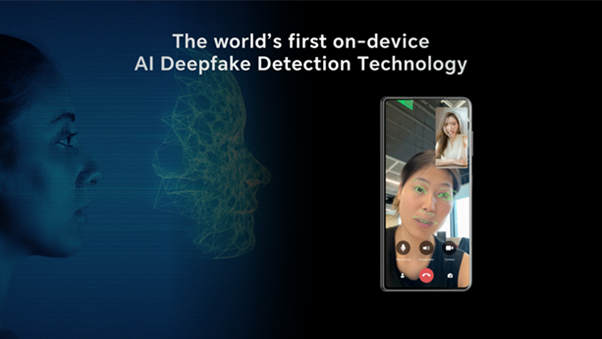From smartphones to smart cities, protecting user data is now a priority as digital breaches continue to escalate globally. Consumer trust hinges on these industries’ commitment to robust data security measures with smartphones at the centre of this transformation.
Research shows that 67% of smartphone users are concerned about data privacy, according to Deloitte, as personal data breaches remain a top risk. However, it’s not just smartphone makers like HONOR, a global tech innovator taking action, privacy concerns are intensifying across tech sectors from financial services to connected devices each striving to keep data safe from ever-evolving cyber threats.

HONOR’s AI deepfake detection feature
Data security in smartphones: leading the charge
Smartphone makers are innovating rapidly to meet privacy needs. HONOR, for example, has introduced AI-driven features to improve data security. With Parallel Space on the HONOR Magic V2, users can create separate, secure spaces for work and personal apps. Similarly, HONOR recently introduced the world’s first on-device AI technology for detecting deepfakes, helping identify fraudulent, manipulated content – a critical feature as deepfake technology becomes more sophisticated. HONOR’s AI Privacy Call 3.0 also minimises sound leakage, allowing for secure calls in public spaces, a growing concern for consumers.
These advanced features are a direct response to heightened user demands for privacy and security. But beyond smartphones, other tech sectors face similar challenges.
Finance, health and IoT: Industry-wide commitment to privacy
The financial sector, for instance, handles massive amounts of sensitive data and has been implementing strict privacy protocols for years. High-profile banks and financial institutions invest in advanced encryption and AI monitoring to detect unusual patterns, preventing fraud in real time. The healthcare industry has also adopted robust data protection measures as digital health records become increasingly common, raising the stakes for protecting patient confidentiality.
Similarly, Internet of Things (IoT) devices – ranging from home security systems to smart appliances – present unique privacy risks. A 2024 ENISA report states that IoT-enabled devices, which may be vulnerable to cyberattacks, require heightened data security standards as more connected devices increase the attack surface for potential breaches. For consumers, awareness that their everyday devices, including smartphones, must uphold strong privacy standards is leading to greater expectations from tech providers.
Building consumer trust through robust privacy measures
Industries that adopt high standards in data privacy and security not only protect user information but also strengthen consumer trust – a critical factor in today’s market. With trust on the line, brands that fail to meet privacy expectations risk losing customers.
As Fred Zhou, HONOR South Africa’s CEO, noted: “Protecting user data isn’t just an industry requirement; it’s essential to building lasting consumer trust.”
The path forward: Making data privacy standard
From smartphones to digital finance and smart home technologies, prioritising data security is essential for every tech-related industry. While smartphones often lead the conversation around privacy, the need for secure data handling extends across the entire tech landscape. For consumers, this commitment to privacy offers reassurance in an era when data can be as valuable as currency. As more companies adopt these practices, the future of digital privacy promises to be a safer place for all users















